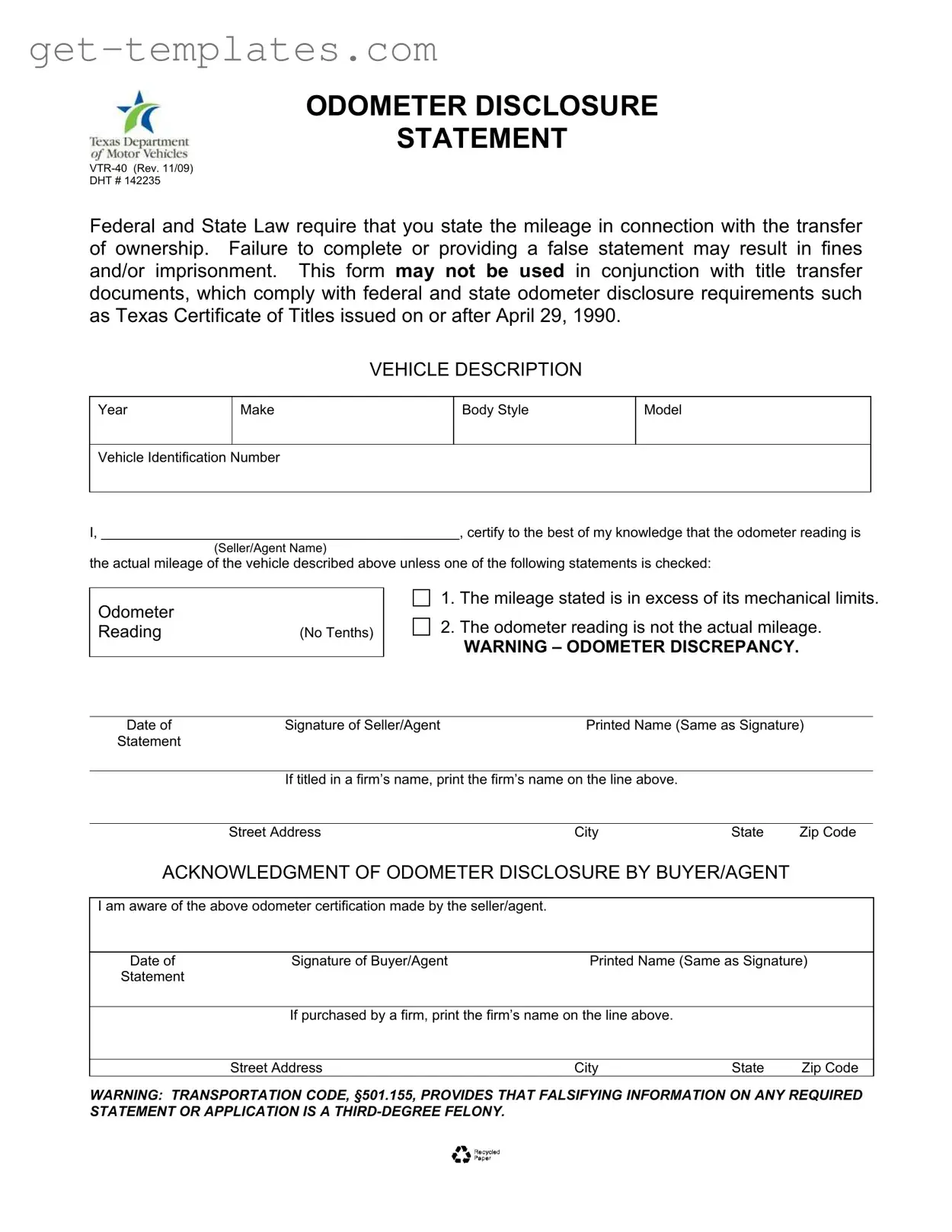The Texas Odometer Statement form, officially known as VTR-40, is a document required when transferring ownership of a vehicle in Texas. This form is essential because it provides a legal declaration of the vehicle's mileage at the time of sale. Both federal and state laws mandate that the mileage must be accurately reported to prevent fraud and protect buyers from purchasing vehicles with misleading odometer readings.
Who needs to complete the Texas Odometer Statement?
Both the seller and the buyer, or their agents, must complete the Texas Odometer Statement. The seller is responsible for certifying the accuracy of the odometer reading, while the buyer acknowledges this certification. This process ensures transparency in the vehicle sale and helps prevent disputes regarding the vehicle's mileage in the future.
The Texas Odometer Statement requires several key pieces of information:
-
The year, make, model, and body style of the vehicle.
-
The Vehicle Identification Number (VIN).
-
The odometer reading, without tenths.
-
The names and signatures of both the seller and the buyer or their agents.
-
The addresses of both parties.
Providing complete and accurate information is crucial, as any discrepancies could lead to legal consequences.
What happens if the odometer reading is incorrect?
If the odometer reading is not accurate, the seller must check the appropriate box on the form to indicate that the mileage stated is either in excess of its mechanical limits or not the actual mileage. This disclosure is important, as it protects the seller from potential legal issues and informs the buyer of any discrepancies that may exist.
Can the Texas Odometer Statement be used with title transfer documents?
No, the Texas Odometer Statement cannot be used in conjunction with title transfer documents that already comply with federal and state odometer disclosure requirements. For vehicles titled in Texas on or after April 29, 1990, the title itself serves as the odometer disclosure document. Therefore, it is essential to ensure that the correct forms are used during the transaction.
Falsifying information on the Texas Odometer Statement is a serious offense. According to Texas Transportation Code §501.155, providing false information can result in severe penalties, including fines and imprisonment. This law emphasizes the importance of honesty and accuracy when reporting a vehicle's mileage, protecting both buyers and sellers in the transaction.
The Texas Odometer Statement form can be obtained from various sources. It is available online through the Texas Department of Motor Vehicles (TxDMV) website. Additionally, local county tax offices and vehicle dealerships may have physical copies of the form. Ensuring that you have the correct and up-to-date version of the form is essential for a smooth transaction.


